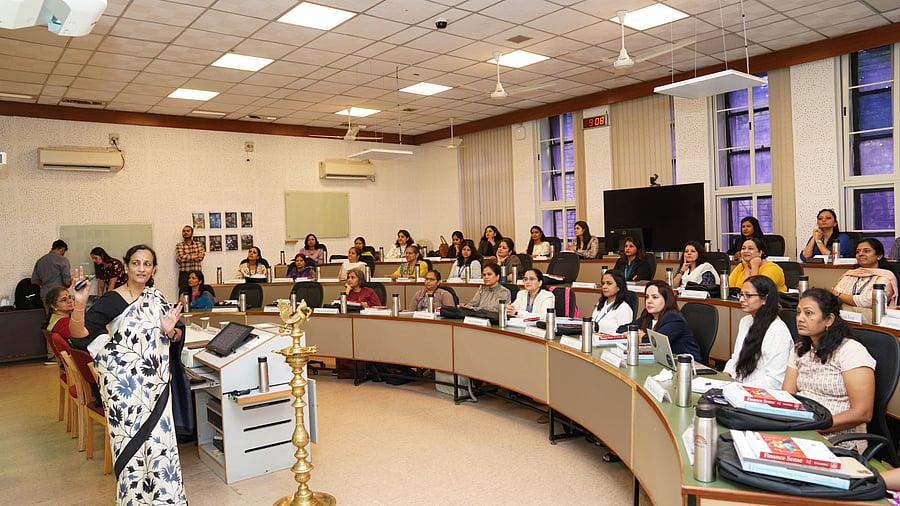
Women make up only 14 percent of the entrepreneurs in India’s startup ecosystem, the third largest in the world. It’s a similar statistic when it comes to women in senior leadership roles — 18.3 percent — in the country.
One can guess that the numbers were much more grim when one of India’s premier management institutes, Indian Institute of Management, Bangalore introduced the Management Programme for Women Entrepreneurs (MPWE) back in 2002, and the women’s leadership programme, Tanmatra, in 2016. Today, the former has incubated over 3,000 startups, while the latter has seen 70% of its participants moving up in their career.
In 2016, the MPWE was modified and renamed Women’s Startup Programme(WSP). But programme director, Suresh Bhagavatula, realised that the women enrolling for it fell under two categories. “There were women who wanted to start a business and there were women entrepreneurs who needed guidance. This required different curricula,” explains professor Bhagavatula, who took over in 2010. So in 2017, they launched the 10,000 Women programme. The course is geared towards women who have already started a business but want to scale up.
The WSP is a longer and more elaborate process. Applicants take a five-week Massive Open Online Course. From this, selected applicants join the pre-incubation programme and a smaller number are selected for the final incubation period.
“These courses were started back when women’s entrepreneurship was a rhetoric. A lot of people were talking about it, but there was no route map, there were no courses on the subject. Today, we don’t have to educate students about entrepreneurship anymore. It’s a desirable professional choice,” Bhagavatula shares.
Mental health to agriculture
The courses offer one-on-one mentoring, milestone tracking, grant support, legal support, and cohort-based learning. The workshops and interactive sessions cover topics such as leveraging network, ideal customer profile, and financial modeling.
Some of the startups that benefitted from the programme include Faiyada, an online marketspace selling products made by underprivileged artisans with disabilities by Sushmeetha Bubna, and Wikiwear TM Inc, started by Sandhya Rao R and Sukanya Rao, which makes post-surgical apparel and accessories using natural fabrics for breast cancer survivors.
Women leaders needed
Tanmatra, the leadership programme, was started nine years ago, with the aim of preparing women for top management and board-level positions. “Tanmatra is Sanskrit for potential,” explains professor Padmini Srinivasan, one of the co-ordinators.
Over 200 women have graduated from the course over the years, she reveals. The women who take up the 21-day course are sponsored by the companies they work for. “Aside from building on their leadership skills, it also offers them an opportunity to network, and exchange ideas,” Padmini explains.